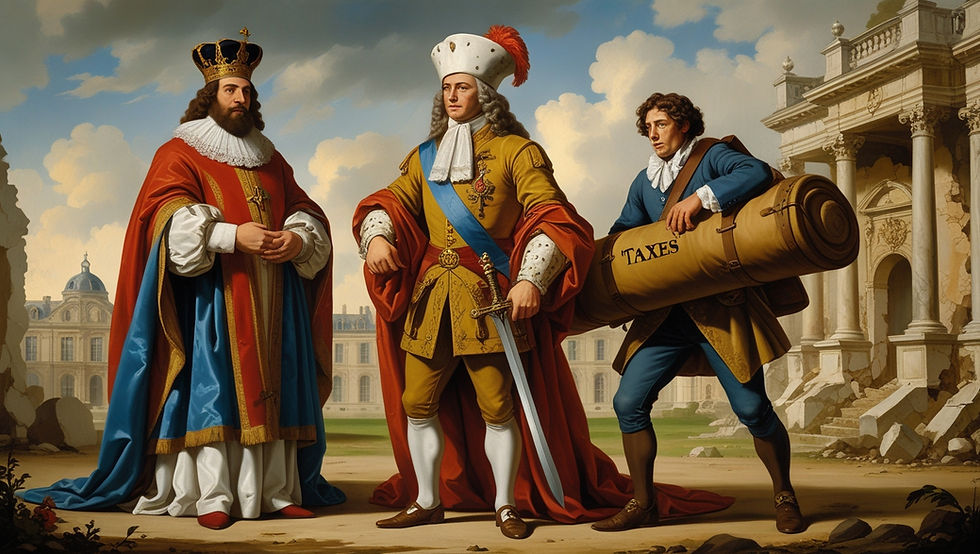The French Revolution
- Maria Hasan
- May 12
- 2 min read
Updated: May 16
The French Revolution of 1789 is one of the most pivotal moments in history. But what really sparked the uprising of the French people against their monarchy? The causes are complex, but several key factors set the stage for this radical shift in society.

1. Social Inequality: The Three Estates
In France, society was divided into three estates:
The First Estate (clergy)
The Second Estate (nobles)
The Third Estate (commoners, which made up 98% of the population)
The Third Estate was heavily taxed, while the clergy and nobility enjoyed privileges. This social inequality left many common people frustrated and hungry for change.
2. Financial Crisis
By the late 18th century, France was deeply in debt. Wars, including supporting the American Revolution, drained the treasury. King Louis XVI and his ministers failed to reform the tax system, which meant the common people were bearing the brunt of the financial burden. With famine also affecting the country, the economic crisis reached a breaking point.
3. Enlightenment Ideas
The Enlightenment had a huge impact on the revolution. Philosophers like Jean-Jacques Rousseau and Voltaire criticized absolute monarchy and promoted ideas of democracy, equality, and individual rights. These new ideas inspired the French to question their traditional system of rule.
4. King Louis XVI’s Weak Leadership
King Louis XVI was seen as ineffective and out of touch with the struggles of the people. His inability to solve the country’s financial problems, coupled with his indecisiveness, eroded his support. When he called the Estates-General in 1789 to solve the financial crisis, it led to further tension and unrest.
5. The Spark: Storming of the Bastille
On July 14, 1789, the people of Paris stormed the Bastille, a symbol of royal tyranny. This event marked the beginning of the revolution. It wasn’t just about a single event—it was the culmination of years of frustration, inequality, and ideas demanding change.
Final Thoughts: The Revolution’s Lasting Impact
The French Revolution overthrew the monarchy, ended centuries of feudal privileges, and introduced ideas of liberty, equality, and fraternity. Though the revolution brought chaos and violence, it ultimately paved the way for modern democratic nations and changed the course of history forever.






Comments